World Immunization Week
Protected together, #VaccinesWork
World Immunization Week, 24–30 April 2019, is an opportunity to recall how immunization helps keep people of the Western Pacific Region safe and healthy and to raise awareness of the need to continue being protected together.
World Immunization Week – celebrated in the last week of April (24-30 April) – aims to promote the use of vaccines to protect people of all ages against disease. Immunization saves millions of lives every year and is widely recognized as one of the world’s most successful and cost-effective health interventions. Yet, there are still nearly 20 million unvaccinated and under-vaccinated children in the world today.
The theme this year is Protected Together: Vaccines work! and the campaign will celebrate Vaccine Heroes from around the world – from parents and community members to health workers and innovators – who help ensure we are all protected through the power of vaccines.
2019 campaign objectives
The main goal of the campaign is to raise awareness about the critical importance of full immunization throughout life
As part of the 2019 campaign, WHO and partners aim to:
• Demonstrate the value of vaccines for the health of children, communities and the world.
• Highlight the need to build on immunization progress while addressing gaps, including through increased investment.
• Show how routine immunization is the foundation for strong, resilient health systems and universal health coverage.
Why immunization matters
Expanding access to immunization is vital for achieving the Sustainable Development Goals, poverty reduction and universal health coverage. Routine immunization provides a point of contact for health care at the beginning of life and offers every child the chance at a healthy life from the earliest beginnings and into old age.
Immunization is also a fundamental strategy in achieving other health priorities, from controlling viral hepatitis, to curbing antimicrobial resistance, and providing a platform for adolescent health and improving antenatal and newborn care.
- World Health Organisation
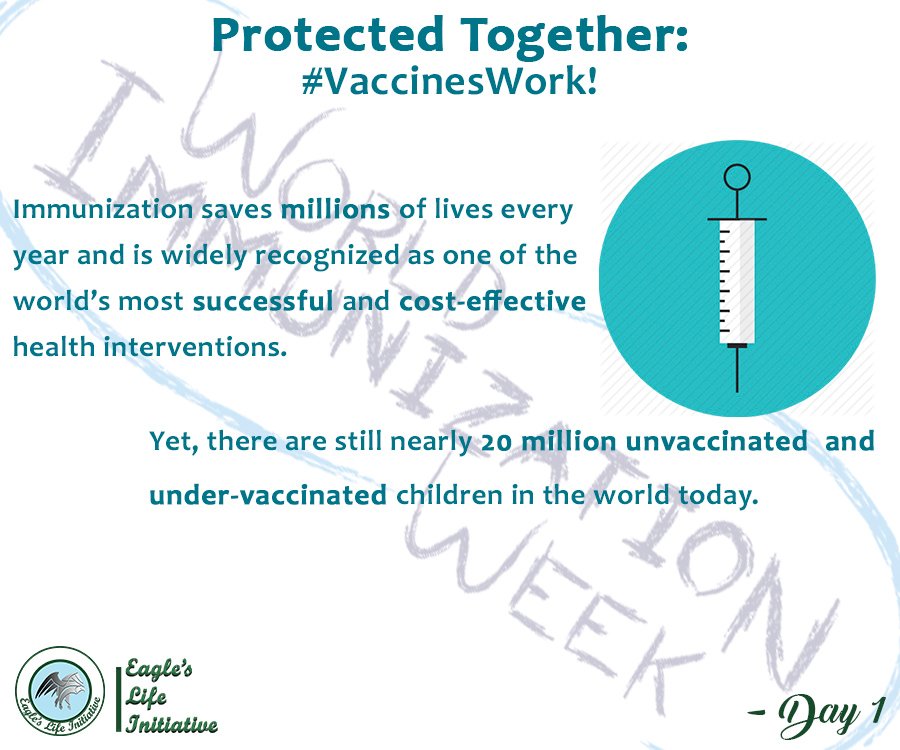

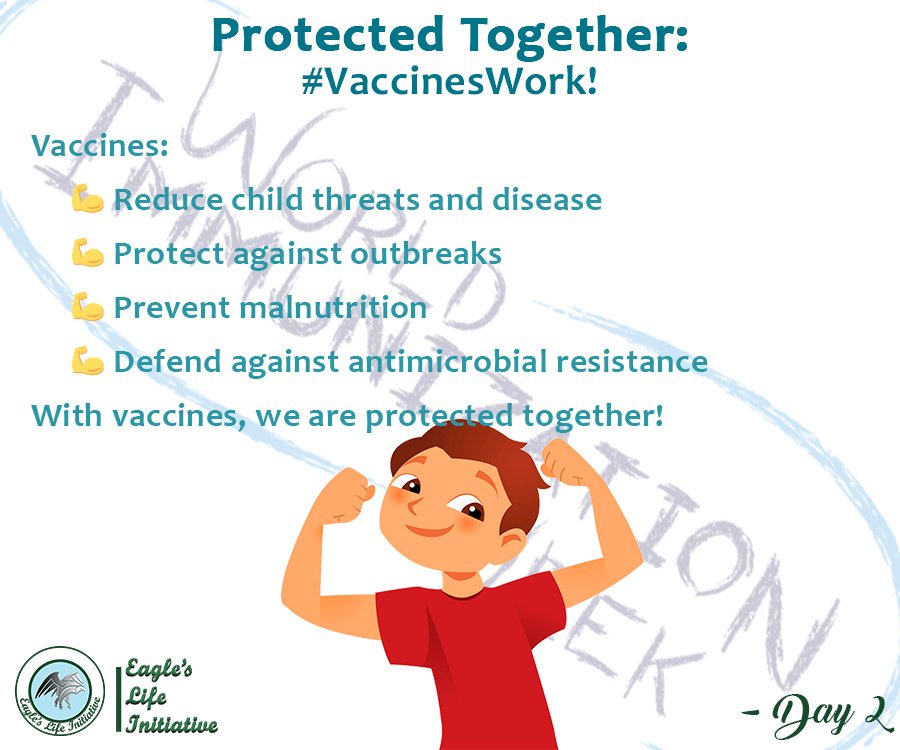
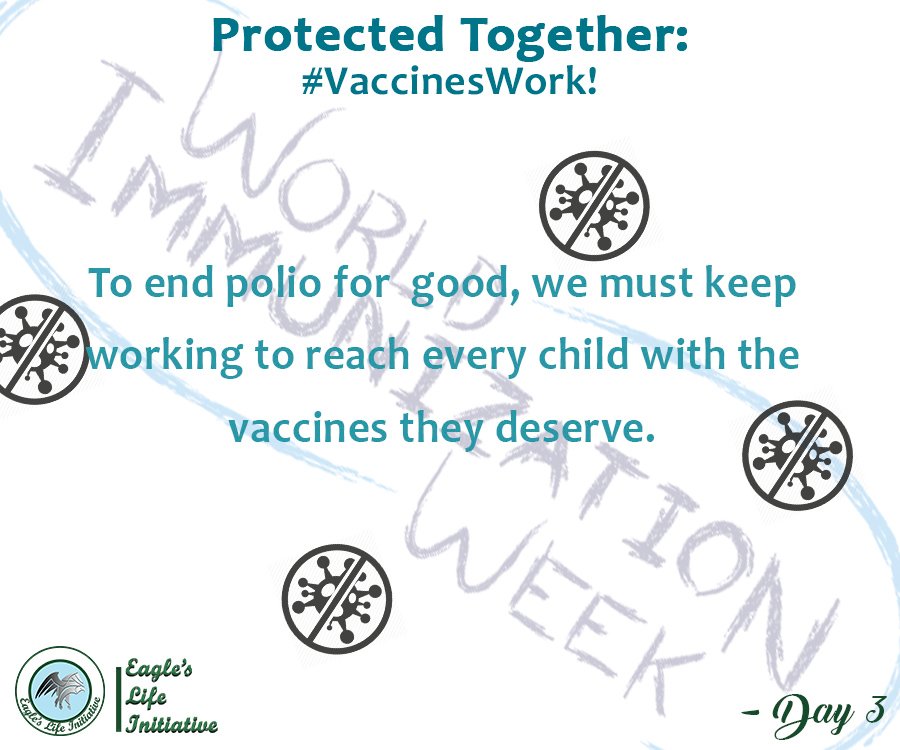
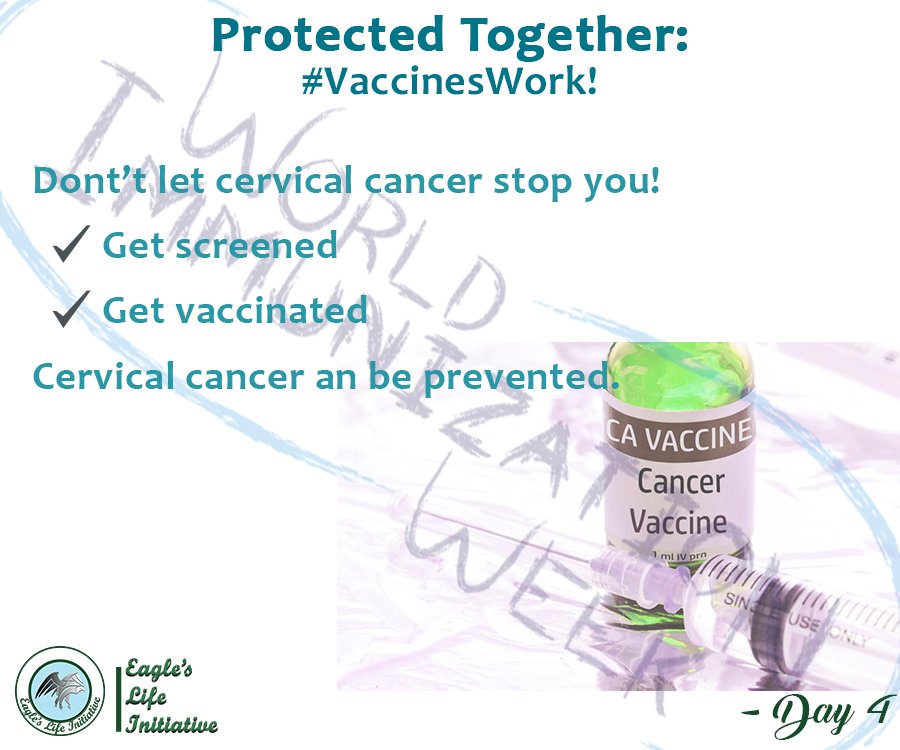
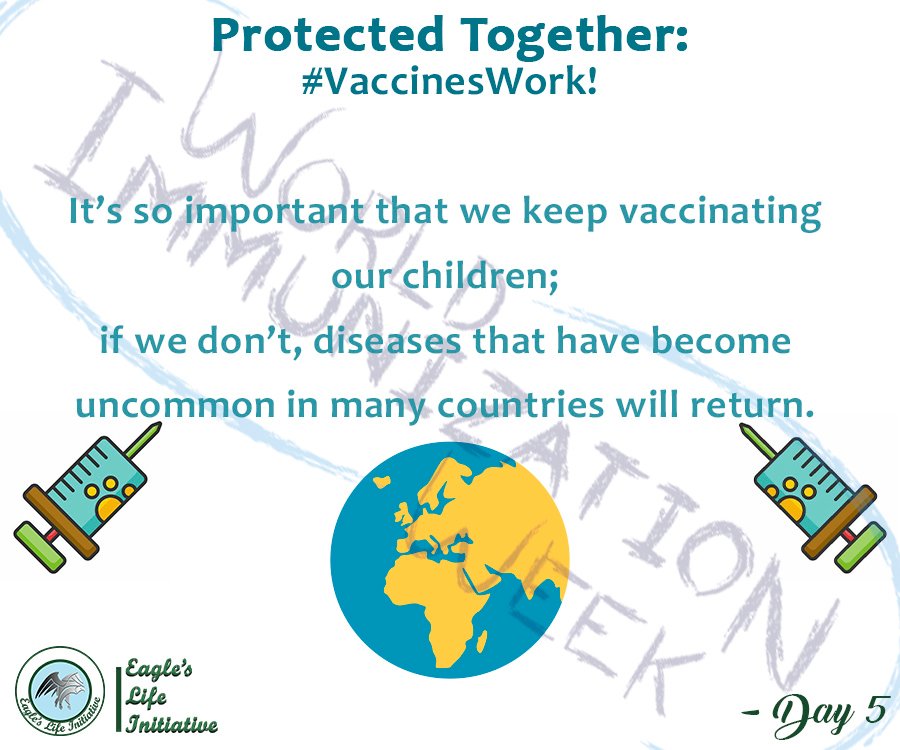
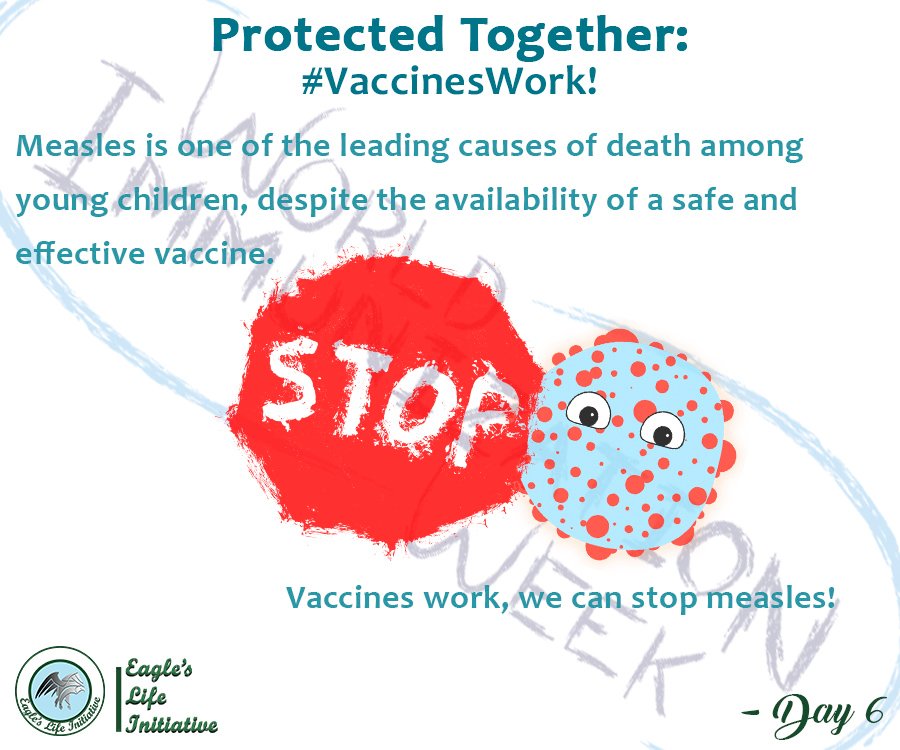
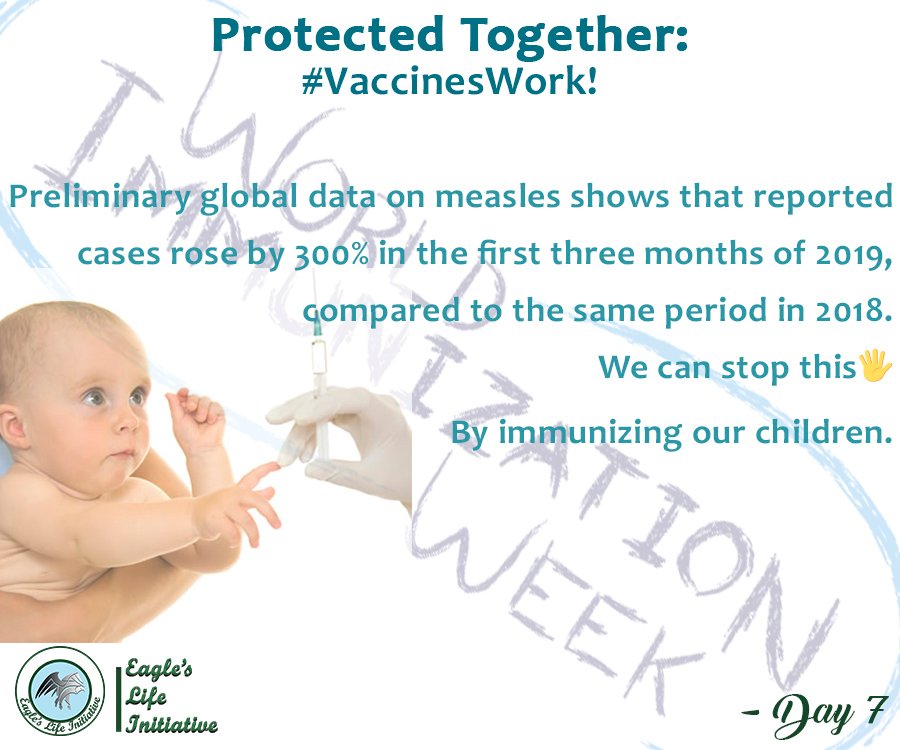
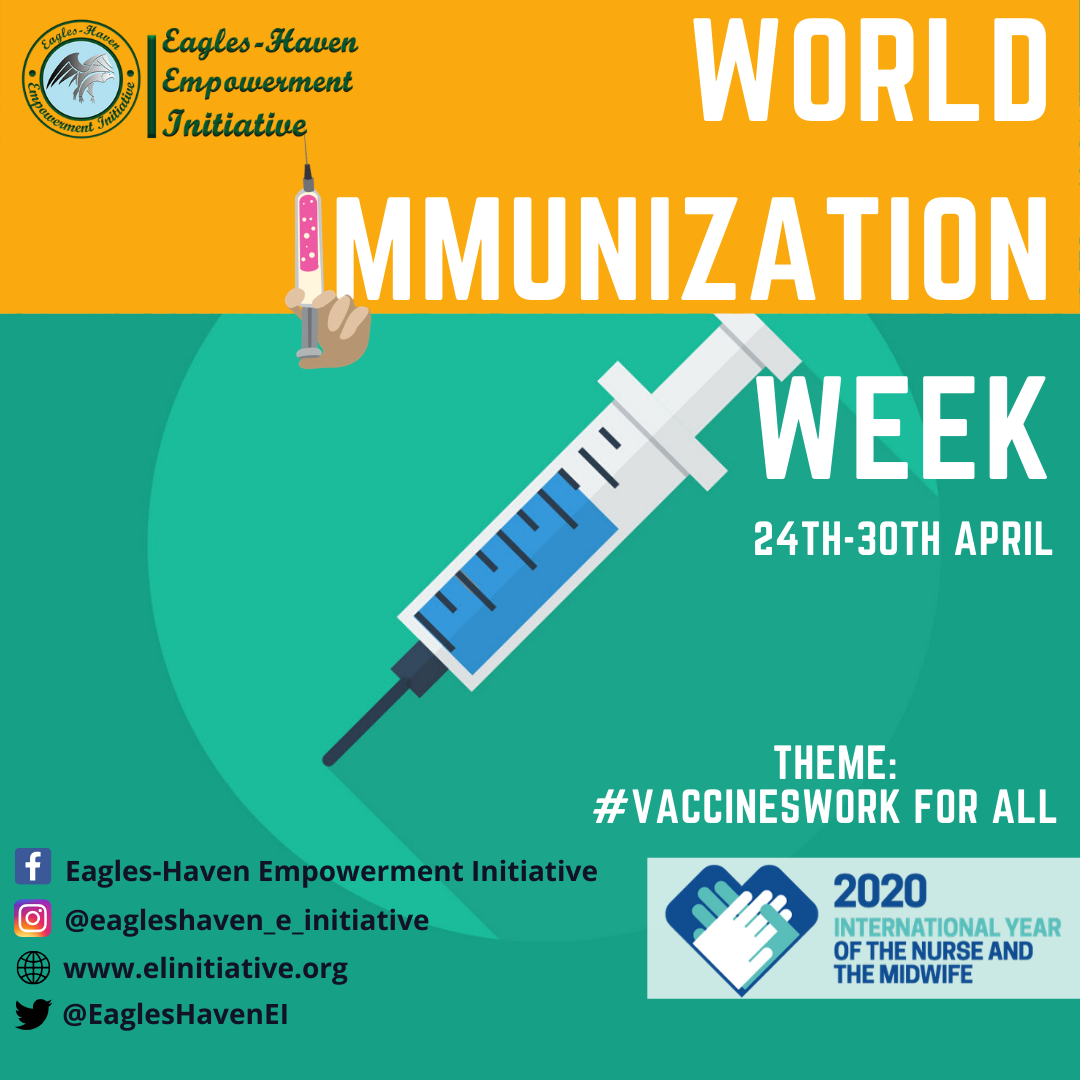
.png)
.png)
.png)
.png)
.jpg)
.png)